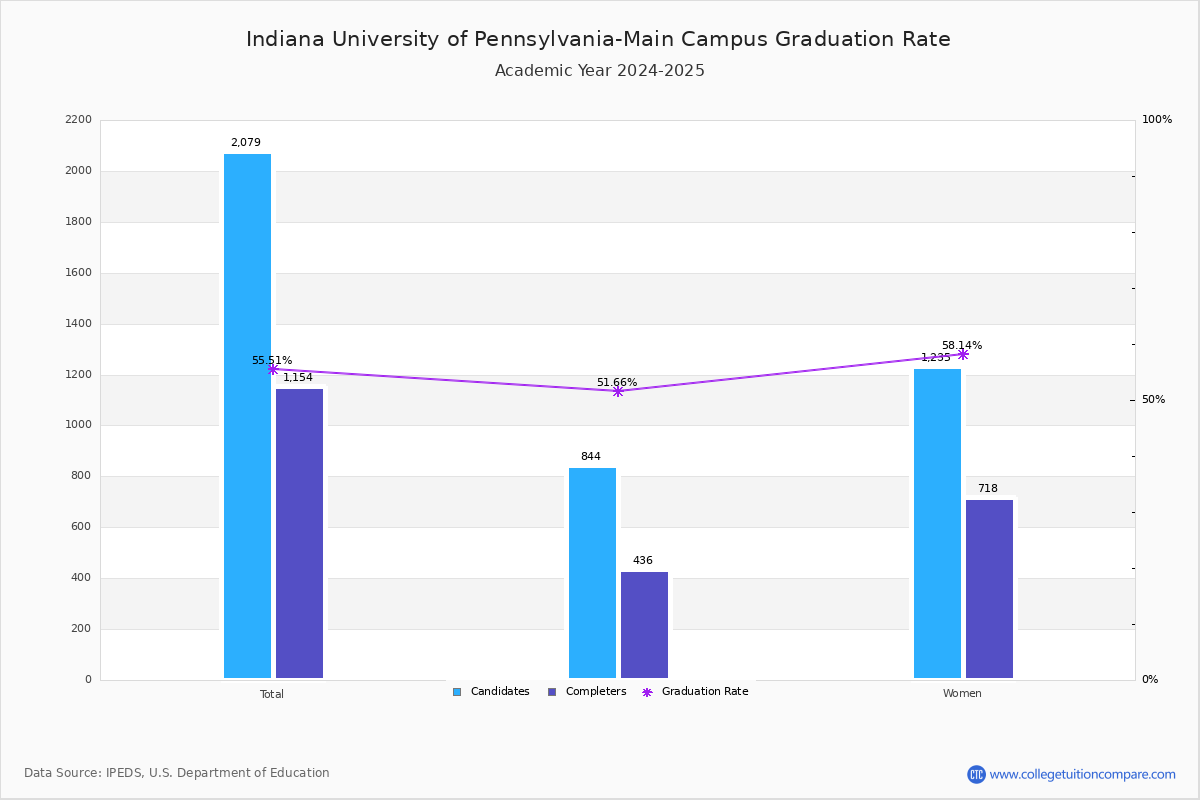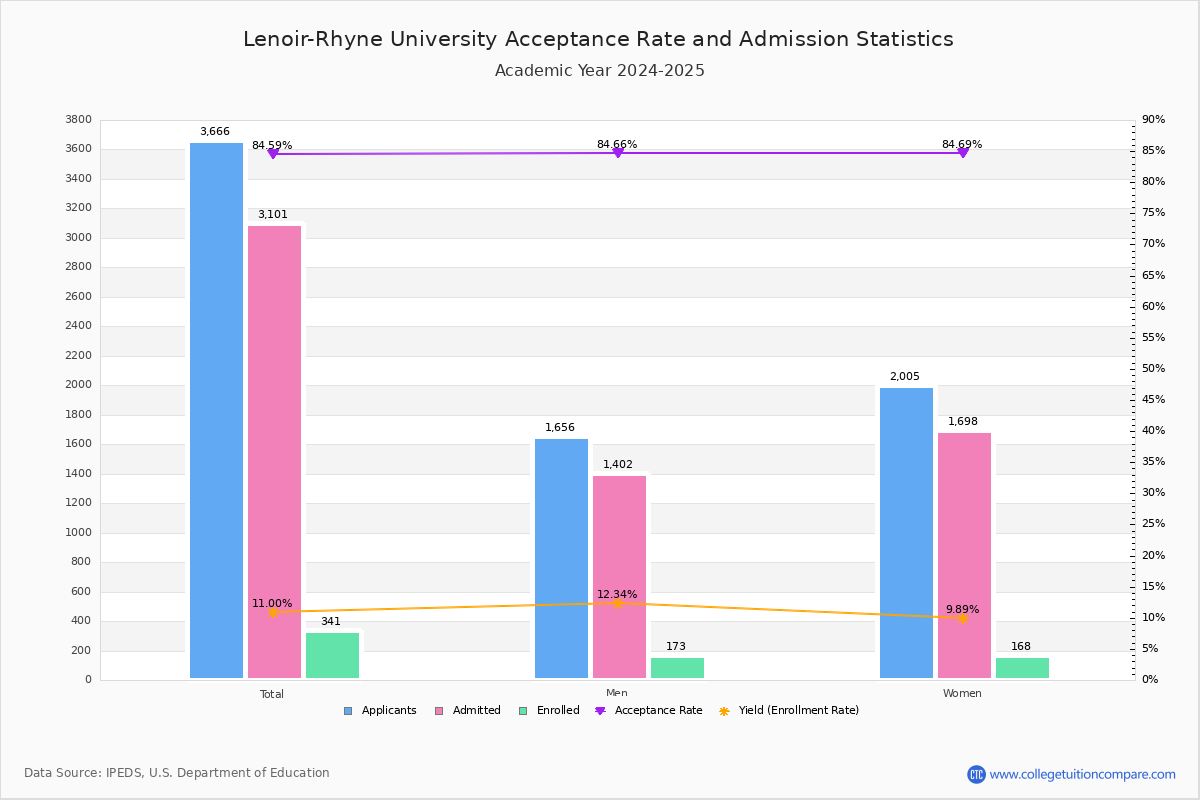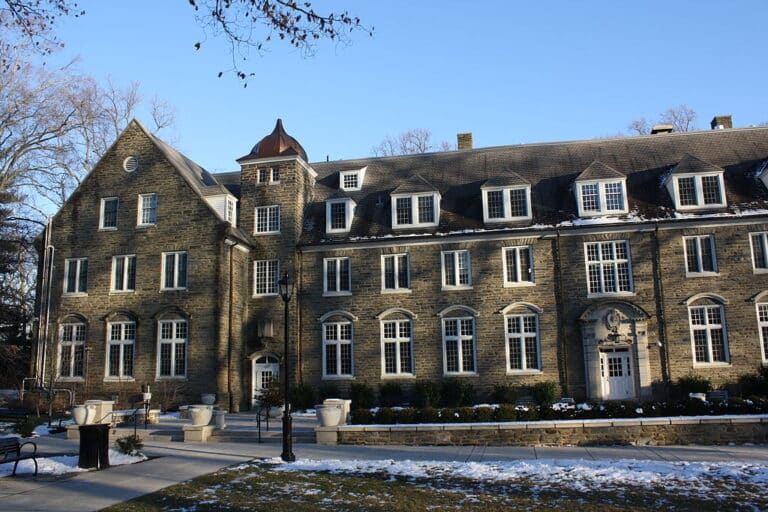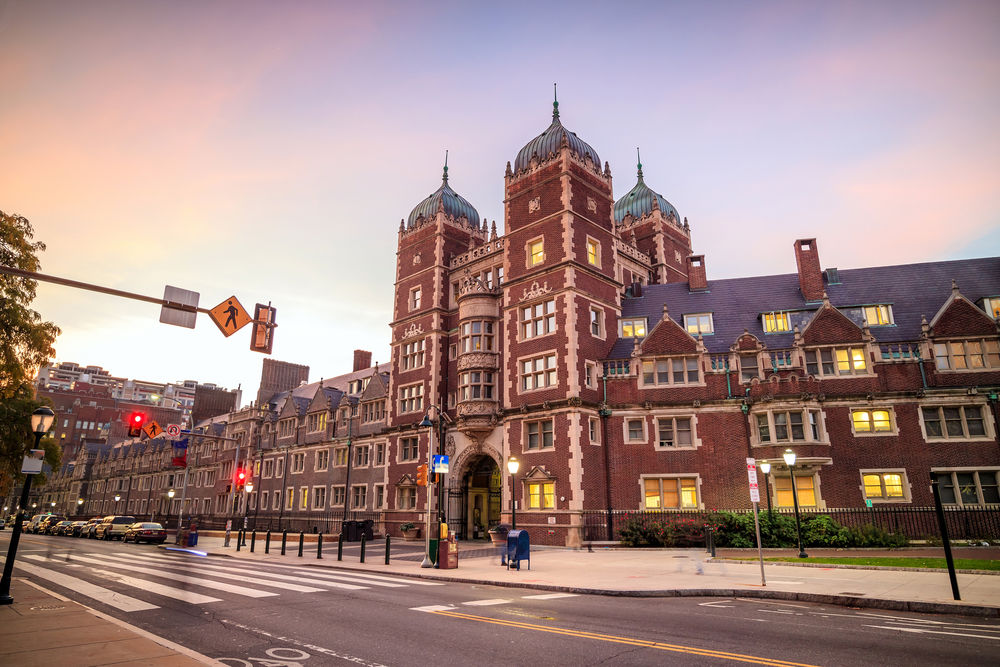The University of Pennsylvania is an Ivy League research institution with an acceptance rate of 8%. The institution has a large selection of undergraduate and graduate degree programs for students to select from. A robust student/faculty ratio backs students, and professors take a personalized approach to the teaching and learning process. Outside of the classroom, students will find plenty of opportunities to engage with the campus community via the university's many clubs and organizations.
For its strengths in the liberal arts and sciences, Penn was awarded a chapter of Phi Beta Kappa. Its strength in research has earned it membership in the Association of American Universities. Undergraduate admissions to the University of Pennsylvania is considered by US News to be "most selective". Admissions officials consider a student's GPA to be a very important academic factor, with emphasis on an applicant's high school class rank and letters of recommendation.
For the class of 2024, entering in the fall of 2020, the university received 42,205 applications and admitted 8.07 percent of the applicants. The Atlantic also ranked Penn among the 10 most selective schools in the country. News & World Report, Penn's most selective programs include its law school, the health care schools , and Wharton business school. Admission StandardsEliteApplicant CompetitionExtremeHow hard is it to get into Penn and can I get accepted? The school has a 8% acceptance rate ranking it #1 in Pennsylvania for lowest rate of acceptance. Last year, 3,740 out of 44,491 applicants were admitted making Penn an extremely competitive school to get into with a very low chance of acceptance – even for applicants with the highest scores and grades.
Academically, it has exceptionally high requirements for admission test scores, generally admitting students who score in the top 4 percent. University of Pennsylvania typically accepts and attracts "A-" average high school students. With over half of admitted students enrolling, acceptance by University of Pennsylvania is a prized outcome for many students.
Most incoming freshmen graduated in the top ten percent of their high school class. Penn's four undergraduate schools include a college of arts and sciences, a business school, an engineering school, and a school of nursing. No matter which school or major students are enrolled in, Penn emphasizes that all undergraduate students receive a thorough foundation in the liberal arts. Many students take courses across all four undergraduate schools and choose from countless interdisciplinary minors and dual degrees.
The University of Pennsylvania, which ranks among the20 most selective universities in the country, has a highly competitive admissions pool with a low acceptance rate and high average SAT/ACT scores. However, Penn has a holistic admissions process involving other factors beyond your grades and test scores. A strong application essay, supplemental essay, and glowing letters of recommendation can strengthen your application, as can participation in meaningful extracurricular activities and a rigorous course schedule.
Students with particularly compelling stories or achievements can still receive serious consideration even if their test scores are outside of Penn's average range. As of fall 2017, there were 21,599 students studying at Penn, split equally between undergraduate and graduate students. Penn has a strong focus on interdisciplinary learning and research, offering double degree programs, unique majors and academic flexibility. This means competition to study at Penn is fierce, particularly at undergraduate level. The admission rate for the class of 2021 was 9.3 percent, of which 46 percent were either black, Hispanic Asian, or Native American. Unusually for an Ivy League school, women comprise over half of all students enrolled.
Penn has four undergraduate schools as well as twelve graduate and professional schools. Schools enrolling undergraduates include the College of Arts and Sciences, the School of Engineering and Applied Science, the Wharton School, and the School of Nursing. Penn's "One University Policy" allows students to enroll in classes in any of Penn's twelve schools.
Among its highly ranked graduate and professional schools are a law school whose first professor wrote the first draft of the United States Constitution, the first school of medicine in North America , and the first collegiate business school . Penn is also home to the first "student union" building and organization , the first Catholic student club in North America , the first double-decker college football stadium , and Morris Arboretum, the official arboretum of the Commonwealth of Pennsylvania. The University of Pennsylvania, founded by Benjamin Franklin in 1740, is an historic and highly selective member of the Ivy League.
With over 10,000 undergraduates from every state and many countries, the University prides itself on its diversity. The University also boasts The Wharton School, ranked as one of the top three business schools in the country. UPenn's interdisciplinary character carries over into its research endeavors. With a research budget of more than $800 million per year and 165 research centers, it is one of the top research universities in the country. As a result, many undergraduates have the opportunity to engage in research projects of their own during their time here. The university maintains four undergraduate schools which provide a combined 99 undergraduate programmes in sciences, business, humanities, and natural engineering.
Providing a combine undergraduate graduation rate of 96 percent for six years, it also maintains 12 graduate and professional schools. It provides the option to practice specialized dual degree programs. The University of Pennsylvania, which ranks among the 20 most selective institutions, has a highly competitive admissions pool with a low acceptance rate and high mean SAT/ACT scores. Students whose SAT/ACT scores and GPA are within the institution's requirements have a good chance of being admitted. Applicants must complete an online application and send test scores from either the SAT or ACT and high school transcripts.
Glowing recommendation letters can bolster your application, along with being involved with student organizations and attempting a challenging course load. Interested students should check out the university's website, which has helpful tips and contact information for the admissions offices. The best thing about Penn is definitely the people or the students. All students are motivated to do well, but also passionate about multiple interests. It is the perfect blend of a campus life located in a city and the perfect example of a school with well-rounded students.
It is the school with the highest percentage of students with internships. One complaint might be that the culture is too pre-professional, but Penn has a great liberal arts program as well. It has some of the best programs in linguistics, psychology, and urban studies. Penn is a campus where innovation and research are encouraged and fulfilled. Furthermore, it is one of the best colleges in terms of engaging and serving the community.
Strengths - Great approachable Professors, almost any class or activity you can think of, wonderful diversity, beautiful campus. Greek life is active, but not necessary to have a rich social life. Tuition, room and board are expensive but there's lots of aid available. Highly recommended, but very competitive admission rate ( around 8% ). Suggest applying Early Decision if Penn's your first choice ( 18% acceptance rate ).
StudyPoint is a national leader in one-to-one, in-home test prep and academic tutoring. The test-taking techniques and strategies taught in our SAT tutoring and ACT tutoring programs enable students to earn higher test scores and gain admissions to competitive colleges and universities. Our expert subject tutors and personalized lesson plans help students earn better grades and become happier, more confident students. Whether you're looking for a math tutor or any other type of academic tutoring, StudyPoint can help. To learn about tutoring programs in your area, feel free to contact us for more information.
I know you aren't interested in adding more anxiety and depression to your life, so I recommend you take a break so you can recharge. Now this doesn't mean I'm giving you a free pass to play video games or hang out at the mall. If you use your time wisely, your extra-curriculars can show your personality, demonstrate how you're actively making a difference in the world, and help you develop leadership muscles. So remember to get involved with a club or two at school, have a part-time job, take up a sport, or volunteer in your community. Not only does taking a break from studying not only prevent burn out; it makes your college applications look even better. When a school is producing alumni like Warren Buffet, Maria Popova, Elon Musk, Noam Chomsky, Donald Trump, and John Legend, it is understandable why many of you have the University of Pennsylvania on your list of colleges to apply to.
And honestly, who can blame you for wanting to go to an Ivy League school like U Penn? But because it is an Ivy League, you have to be strategic about your application and your preparation. Keep reading to learn important facts about the U Penn acceptance rate, standardized test scores, and what you can do to improve your chances of getting in. Penn's research tradition has historically been complemented by innovations that shaped higher education.
In addition to establishing the first medical school, the first university teaching hospital, the first business school, and the first student union, Penn was also the cradle of other significant developments. In 1852, Penn Law was the first law school in the nation to publish a law journal still in existence . Under the deanship of William Draper Lewis, the law school was also one of the first schools to emphasize legal teaching by full-time professors instead of practitioners, a system that is still followed today. The Wharton School was home to several pioneering developments in business education. University of Pennsylvania admissions are extremely selective with a low acceptance rate. Applicants even with above-average scores have very little chance of getting admitted.
Essay and LOR should be emphasized while making the application as a good essay and strong recommendation can set you apart in this tough competition. The admission decision are announced by Mid December for Early Decision applicants and by April 1 for Regular Decision applicants. Read on to learn more about UPenn acceptance rate, UPenn legacy acceptance rate, UPenn legacy definition, UPenn college of arts and sciences acceptance rate, UPenn legacy rejection, Wharton acceptance rate, Harvard legacy acceptance rate, and so on. You'll also discover more resources on Collegelearners related to best engineering schools in Minnesota. Each year the University of Pennsylvania receives approximately 23,000 undergraduate applications and admits about 4,000 students. Its 18% acceptance rate that makes it one of the most selective universities in the country.
The Early Decision option is available for students who make UPenn their first choice and agree to matriculate, if accepted. There is a slightly higher acceptance rate for students who use this option. Given its renowned reputation as one of the best medical schools in both the U.S. and the world, Penn Med's admissions process is extremely rigorous.
It's also highly selective, with one of the lowest acceptance rates in the country. Before we get started, I want you to know that I never promise my students that I can get them into any university. Because so many colleges use a holistic application review that makes sure students fit with others being admitted on top of the normal academic standards. Then you're serious about applying, rolling up your sleeves and getting to work. So, I'm going to give you the top four ways you can increase your chances of getting into U Penn. In the scattergram, the blue and green represent accepted students.
You can see that the great majority of admitted students had a self-reported GPA of 3.7 or higher, a combined SAT score (ERW+M) of over 1200, and an ACT composite of 24 or higher. Hidden beneath the blue and green in the upper right corner of the graph is a lot of red, so keep in mind that even students who seem to be on target for admission get rejected from Penn. For any school with a single digit acceptance rate, it is best to consider the institution a reach school, even if your scores are on target for admission.
University of Pennsylvania received 44,961 undergraduate applications in 2019, which represents a 1.06% annual growth. Out of those 44,961 applicants, 3,446 students were accepted for enrollment, representing a 7.66% acceptance rate. IslamIn 1963, the Muslim Students' Association and Penn chapter of MSA National were founded to facilitate Muslim life among students on college campuses. The University of Pennsylvania chapter was established to help Penn Muslims build faith and community by fostering a space under the guidance of Islamic principles. In 1973, Penn MSA helped found Masjid Al-Jamia, a mosque close to campus, to facilitate Penn's and the local community's easy access to Islamic study circles, social events, Friday prayers and holiday celebrations. Chaplain Anton's mandate includes supporting and guiding the Penn Muslim community to foster further development of such community by creating a welcoming environment that provides Penn Muslim community opportunities to intellectually and spiritually engage with Islam.
The overall acceptance at UPenn is just 5.68%, which is substantially lower than the 15% acceptance rate for students applying through the school's early decision program. Simply applying early decision at UPenn provides a big boost to your odds of admission. Simply having great grades and superb standardized test scores is not enough to earn admission to a highly selective school such as UPenn, since nearly every applicant is academically qualified. While all the different undergraduate schools are competitive, some are more so than others.
Wharton (9% acceptance rate) is the most competitive school, while the School of Nursing (25% acceptance rate) is the least competitive of the four. Penn is an elite private university located in Philadelphia, Pennsylvania. It is a large institution with an enrollment of 10,448 undergraduate students. Admissions is extremely competitive as the Penn acceptance rate is only 8%. Popular majors include Finance, Management Sciences and Information Systems, and Philosophy.
Graduating 96% of students, Penn alumni go on to earn a starting salary of $71,600. Spread the loveApplying for admission to professional and graduate schools is no less competitive than college/undergraduate admissions. If you're planning to pursue a degree in business, law, medicine, or graduate ...
The University of Pennsylvania seeks students who have diverse backgrounds and life experiences. This highly selective college looks for applicants who are bright, intellectually curious and who have a strong foundation in a rigorous and comprehensive college preparatory program. Students who have an interdisciplinary mindset and desire to make their contribution to the world will be highly sought by the university. The ideal applicant will possess talents and experiences that will help enhance the campus community. An ability to apply classroom knowledge to real-life situations is also highly regarded by the University of Pennsylvania.
Record-low admittance rates pervade this year's regular decision applicants at other Ivy League schools, as well. At Brown University, the college admitted just 6.6 percent of applicants overall, and only 4.8 percent among regular-decision applicants. A reported 38,674 students applied; like Penn, this was the school's largest applicant pool ever.
The University of Pennsylvania offered admission to a record-low percentage of applicants for its class of 2023. The college also received a record number of applications from prospective students. The downward trend for admissions at Penn is in line with rates at other Ivy League schools. MedEdits helps students get admitted to medical school and residency programs. Our consultants have years of experience serving on medical school admissions committees, and as faculty members at the top medical schools in the country.
With its 9.4% acceptance rate and roster of impressive alumni, U Penn is an amazing Ivy League school with incredible opportunities available to its students. The competition for admissions is increasing every year so make sure you follow the steps I've provided above to increase your chances of being one of the students in the U Penn acceptance rate. This admissions data tells us that most of Penn's admitted students fall within the top 7% nationally on the SAT. For the evidence-based reading and writing section, 50% of students admitted to Penn scored between 700 and 760, while 25% scored below 700 and 25% scored above 760. On the math section, 50% of admitted students scored between 750 and 800, while 25% scored below 750 and 25% scored a perfect 800.































No comments:
Post a Comment
Note: Only a member of this blog may post a comment.